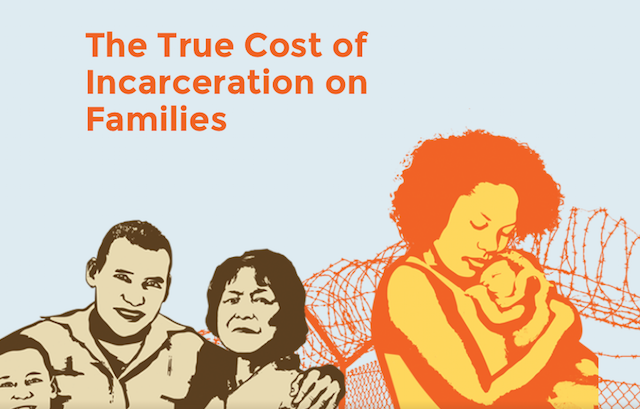Study Reveals the Financial Impact of Mass Incarceration on Families

A new study looks beyond the oft-reported topline numbers surrounding incarceration in America to capture the personal costs associated with having a family member in the penal system. “Who Pays? The True Cost of Incarceration on Families” quantifies the real and lasting collateral damage of mass incarceration, from mental health support to loss of children, to permanent decreases in earning potential.
Conducted by the Ella Baker Center for Human Rights, Forward Together and Research Action Design, the project spanned the course of a year. During that time, researchers interviewed nearly 1,500 ex-offenders, their families and their employers with the assistance of 20 community-based organizations. More than three-quarters (76 percent) of the family members interviewed were black, 15 percent were Latino, 10 percent were white, 4 percent were Native American and 1 percent identified as AAPI. The result of talking with them: A holistic view of the true impact of mass incarceration in America, where 1.5 million people of color are locked up and separated from their families. Among the key findings:
- The average debt incurred for court-related fines and feeds totaled $13,607.
- In 63 percent of cases, family members on the outside were primarily responsible for court-related costs. Of those relatives, 83 percent were women.*
- Two in three families have a hard time meeting basic needs as a result of a loved one’s conviction and incarceration, and 70 percent of those families include children.
- There are 44,000+ local, state and federal restrictions placed on ex-offenders.
- Fully 67 percent of ex-offenders were unemployed or underemployed five years after release.
- 1 in 4 ex-offenders were denied school loans because of a prior conviction.
- In 63 percent of cases, family members were the primary parties responsible for court-related costs. Fully 83 percent of those people left holding the bag were women.
- Four in five (79 percent) of participants were denied or declared ineligible for housing because of their or a loved one’s conviction history.
“This study confirms what society has ignored for too long—that already vulnerable families and the women who sustain them are being plummeted into greater poverty, stress and strain when their loved ones are incarcerated,” Alicia Walters, movement-building director at Forward Together said in a statement e-mailed to Colorlines. “Decades of bad policy have torn families apart, typically leaving mothers to make up the difference and bear the brunt of these costs.”
{{image:2}}
The authors propose reform in three areas to ease the burden on families of current or former prisoners. They include:
- Allocate funds to programs and services that are proven to reduce recidivism.
- Remove barriers that stand in the way of post-prison economic opportunities and make it difficult for ex-offenders to support themselves and their families.
- Invest in job training and subsidized employment services for ex-offenders.
Read the entire report here.
*Post has been updated since publication to include more information about women.
